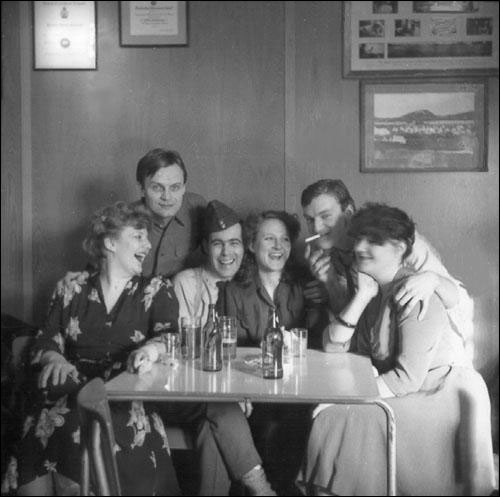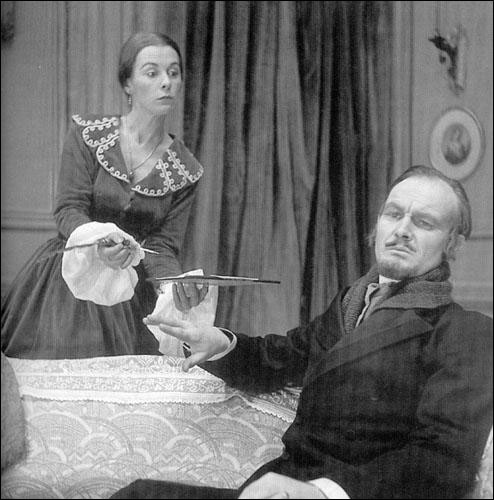Amateur Theatre Tradition
The roots of the amateur theatre in Newfoundland and Labrador can be traced back to the 18th century. Members of the garrison in St. John's organized dramatic entertainments to raise money for the poor, and a variety of other benevolent societies did the same. Alongside these amateur activities, touring theatrical companies began to visit St. John's from Canada, the United States and the United Kingdom.
Purpose built theatres appeared, with the Amateur Theatre opening its doors in 1822. Throughout the 19th century, various notable figures and buildings emerged. Pat Hynes directed amateurs at the Fishermen's Hall in 1886. The Total Abstinence and Benefit Society raised money through performances to pay off its theatre, the T. A. Hall. Charles Hutton mounted musicals through the 1890's. Evidence also points to members of upper class society frequently staging amateur theatricals in their homes. In urban areas and elsewhere, various forms of mummering and folk plays flourished. Outside St. John's, concerts and community entertainments became dominant forms of theatrical activity.
Amateur Theatre Companies
The mix of amateurs and touring companies continued into the 20th century. But in 1937 an amateur company was formed, the St. John's Players, and a new era in amateur theatre began. Amateur theatre companies soon emerged across the province and in 1950, five groups - the St. John's Players, the Pepperrell Air Force Officers club, the Amateur Players and the Cathedral Players (both from Corner Brook), and a group from Harbour Grace competed in St. John's at the first of many drama festivals.

An event which would colour subsequent theatrical activity in the province was the arrival in 1951 of the London Theatre Company. For the next six years, this professional company performed in repertory to appreciative audiences in St. John's. The impact of this company on audience development and theatre training was obvious. Those of its members who chose to stay on in St. John's after the company disbanded formed the Arts Club in 1956. The fifties and sixties were characterized by an explosion in amateur theatre activity. The Carol Players drama group, for example, was formed in Labrador West in 1964 and traveled to numerous provincial festivals. The Dominion Drama Festival competition became the artistic and social event of the season.
Concerts, Carnivals, and Festivals
Not all amateur theatrical activity came under the umbrella of play productions. Concerts were the dominant form of theatrical expression in some regions, often a blend of original skits, music and recitation. In 1970, in Gander, the St. Martin's Concert started. Likewise in 1960, St. Lawrence first staged its Mardi Gras, a five-day pre-Lenten Carnival. Different areas of the province maintained their own theatrical traditions. Some developed strong amateur plays which competed annually at the festivals. Others created concert material, often developed for annual events.

The Arts and Culture Centre
In 1967, the Arts and Culture Centre opened in St. John's and the National Dominion Drama Festival came to Newfoundland. The mandate of this festival was the production of Canadian plays. In Newfoundland, companies turned to playwrights and novelists who happily complied, with the adaptation by Tom Cahill of Harold Horwood's Tomorrow Will Be Sunday emerging as the national winner.
The opening of Arts and Cultures Centres across the province promised greater production facilities for the amateur groups, with the provision of traditional, fully equipped proscenium theatres. However, the promise of new plays and a new theatre was a little premature. While amateur activity in the Arts and Culture Centres during the seventies and early eighties was high, musicals began to become the dominant genre. In the eighties, the high cost of running the centres began to be passed on to users, with the result that amateur groups increasingly turned to alternative venues.
Despite these economic factors, amateur theatrical activity emerged in the 90s as a strong theatrical force. At that time Newfoundland and Labrador was the only province in Canada to retain an annual drama festival where groups from across the province meet to perform and applaud.




